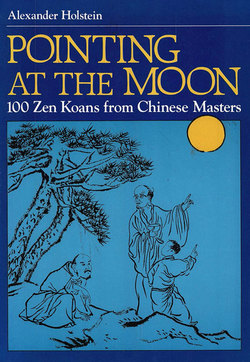Читать книгу Pointing at the Moon - Alexander Holstein - Страница 22
На сайте Литреса книга снята с продажи.
ОглавлениеDogs Do Not Have the Buddha Nature
MONK asked Ch'an master Chao Chou, "Do dogs have the Buddha nature?"
"No," was the reply.
"Even the smallest of insects have minds, so they have the potential to become Buddhas. So why don't dogs have this?"
"Because of'learning,'" replied the master.
Later, someone else asked Chao Chou the same question, "Do dogs have the Buddha nature?"
"Yes," he answered.
"But why did the dog bite through the skin-bag?"
"Because it had realized its potential for becoming Buddha, and therefore went against what was prohibited."
Commentary: Chao Chou answered the same question in two different ways. From the world's point of view this was rather contradictory. However, to the Ch'an master, this was a lively way of teaching. In the Ch'an tradition, the first thing a practitioner needs to do is to rouse his doubts. If he has no doubts, he will never attain realization. When answering a question, the Ch'an masters usually have to determine the intention and the state of mind of the person who asked the question before giving the appropriate answer. When Chao Chou replied "no," he was alluding to the fact that dogs did not attain the Four Morals (pure morality). The answer "yes" meant that dogs, like all other beings, had the potential to become Buddha, but because of their purposeful learning, pure morality would never appear. This is why the master said "no" the first time. On the other hand, although the dog had realized its potential to become Buddha, it went against prohibition, causing evil. This was probably the reason it was reduced to the form of a dog again and again. It seems that the first answer, "no," merely meant that the master disagreed, and replied negatively. However, this "no," according to Ch'an thinking, is one with the ax that breaks down all muddled thoughts.
